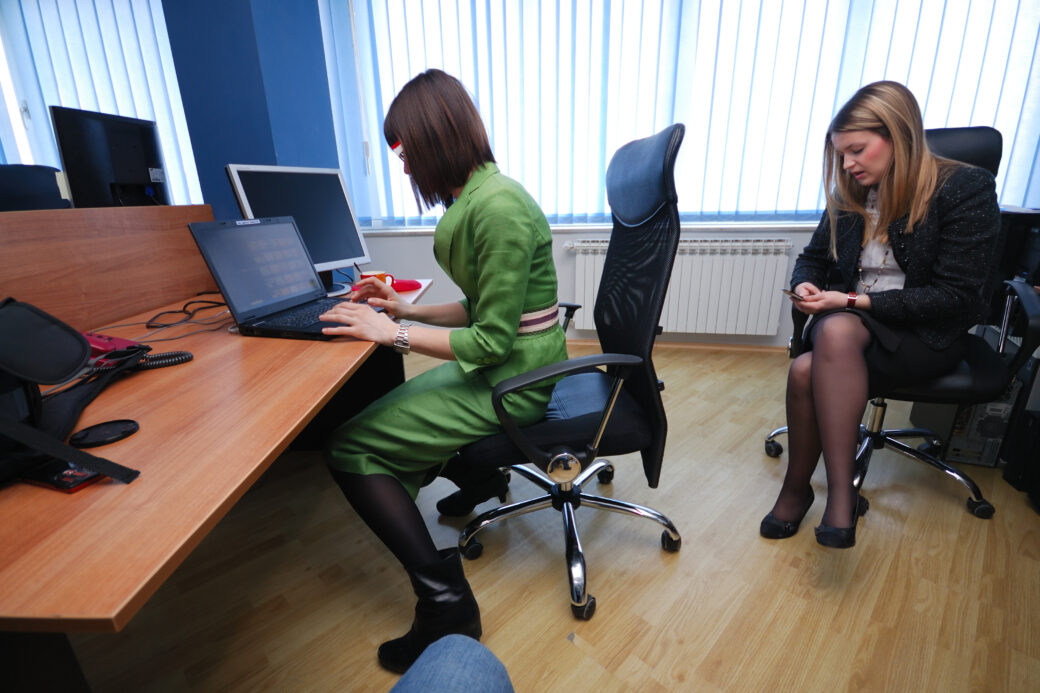
Lumbar pain, or lower back pain, can worsen due to various factors and conditions. Understanding these triggers can help manage and mitigate exacerbations of lumbar pain.
Here are some common factors that can make lumbar pain worse…
- Poor Posture – Maintaining improper posture, such as slouching while sitting or standing, can strain the muscles and ligaments of the lower back, leading to increased pain over time.
- Sedentary Lifestyle – Prolonged sitting or lack of physical activity can weaken the muscles that support the lower back, contributing to stiffness, muscle imbalances, and increased vulnerability to pain.
- Lifting Heavy Objects Incorrectly – Improper lifting techniques, such as bending at the waist rather than the knees, can strain the muscles and ligaments of the lower back, leading to acute pain or exacerbation of existing pain.
- Repetitive Movements – Performing repetitive movements or activities that involve bending, twisting, or lifting without proper form can strain the muscles and lead to overuse injuries in the lower back.
- Obesity – Excess body weight, particularly around the abdomen, shifts the body’s center of gravity forward, increasing the load on the lower back muscles and contributing to pain and discomfort.
- Muscle Weakness or Imbalance – Weak core muscles (abdominals, back extensors) or imbalance between muscle groups can affect spinal alignment and stability, leading to increased stress on the lower back.
- Poor Ergonomics – Using furniture or equipment that does not support proper body alignment, such as an unsupportive chair or workstation, can contribute to strain on the lower back over time.
- Degenerative Conditions – Conditions such as osteoarthritis, spinal stenosis, herniated discs, or degenerative disc disease can cause structural changes in the spine that lead to chronic or recurrent lower back pain.
- Stress and Emotional Factors – Emotional stress or anxiety can lead to muscle tension and increased perception of pain, which can exacerbate existing lumbar pain.
- Lack of Sleep – Inadequate sleep or poor sleep quality can affect pain perception and reduce the body’s ability to recover from daily stressors, including lower back strain.
Tips to Manage Lumbar Pain
- Maintain Good Posture – Practice proper posture while sitting, standing, and lifting to reduce strain on the lower back.
- Stay Active – Engage in regular exercise, such as walking, swimming, or gentle stretching, to strengthen muscles, improve flexibility, and support spinal health.
- Use Proper Lifting Techniques – Lift objects by bending your knees and using your legs rather than your back. Avoid twisting your body while lifting.
- Manage Weight – Maintain a healthy weight through a balanced diet and regular physical activity to reduce stress on the lower back.
- Modify Your Environment – Use ergonomic furniture and equipment that supports good posture and reduces strain on the lower back.
- Practice Stress Management – Incorporate relaxation techniques such as deep breathing, meditation, or yoga to reduce muscle tension and stress that can contribute to lower back pain.
If you experience persistent or severe lower back pain, consult a healthcare professional for an accurate diagnosis and appropriate treatment plan. They can provide personalized recommendations to address the underlying causes of your lumbar pain and help you manage it effectively.
Related Posts
Is Walking Good For Lumbar Strain?
On
June 13, 2024
Is Walking Good For Lumbar Spine?
On
June 4, 2024
Is Stretching Good For Lumbar Pain?
On
June 25, 2024
How Can I Adjust My Lumbar At Home?
On
July 1, 2024



